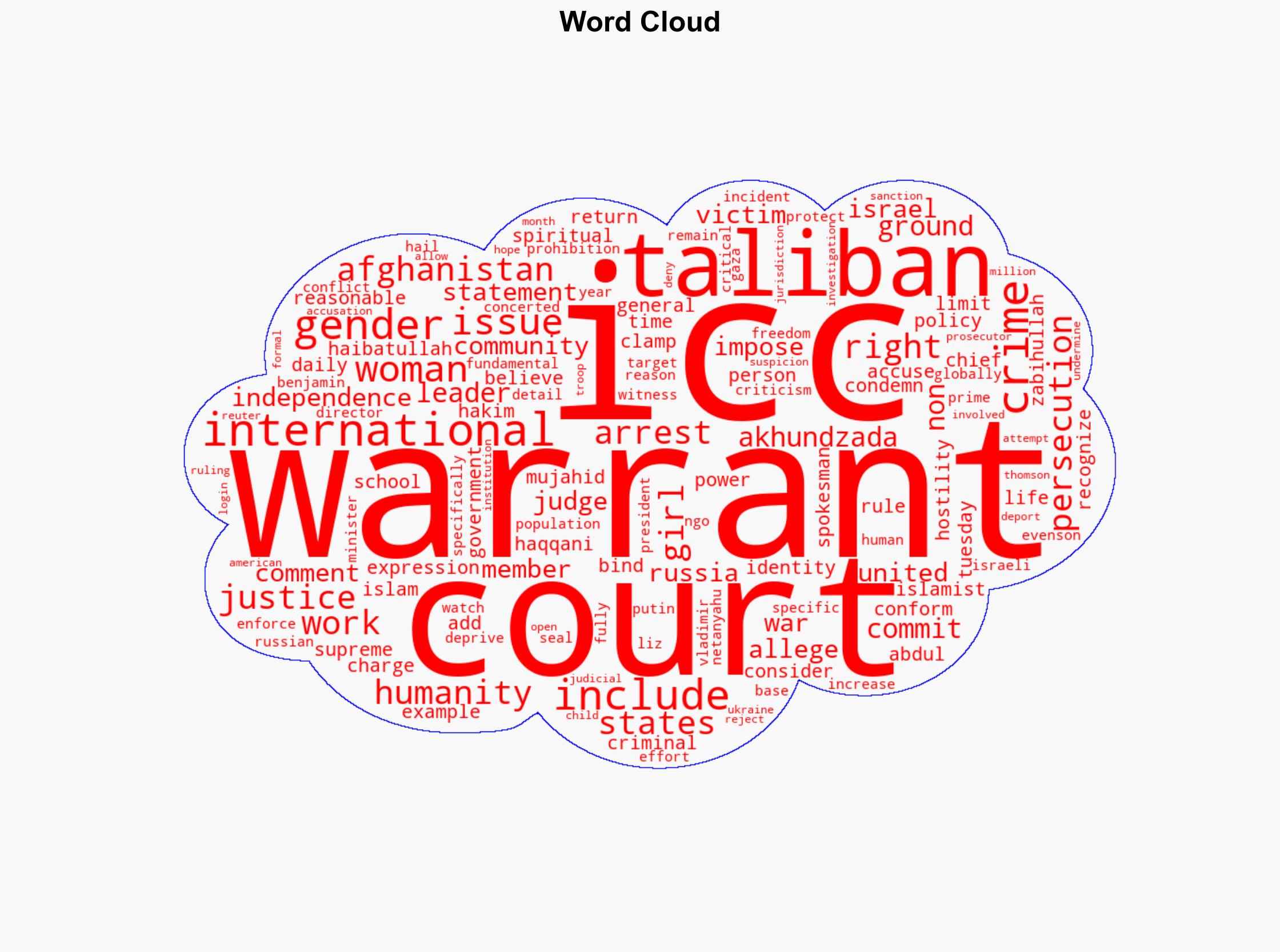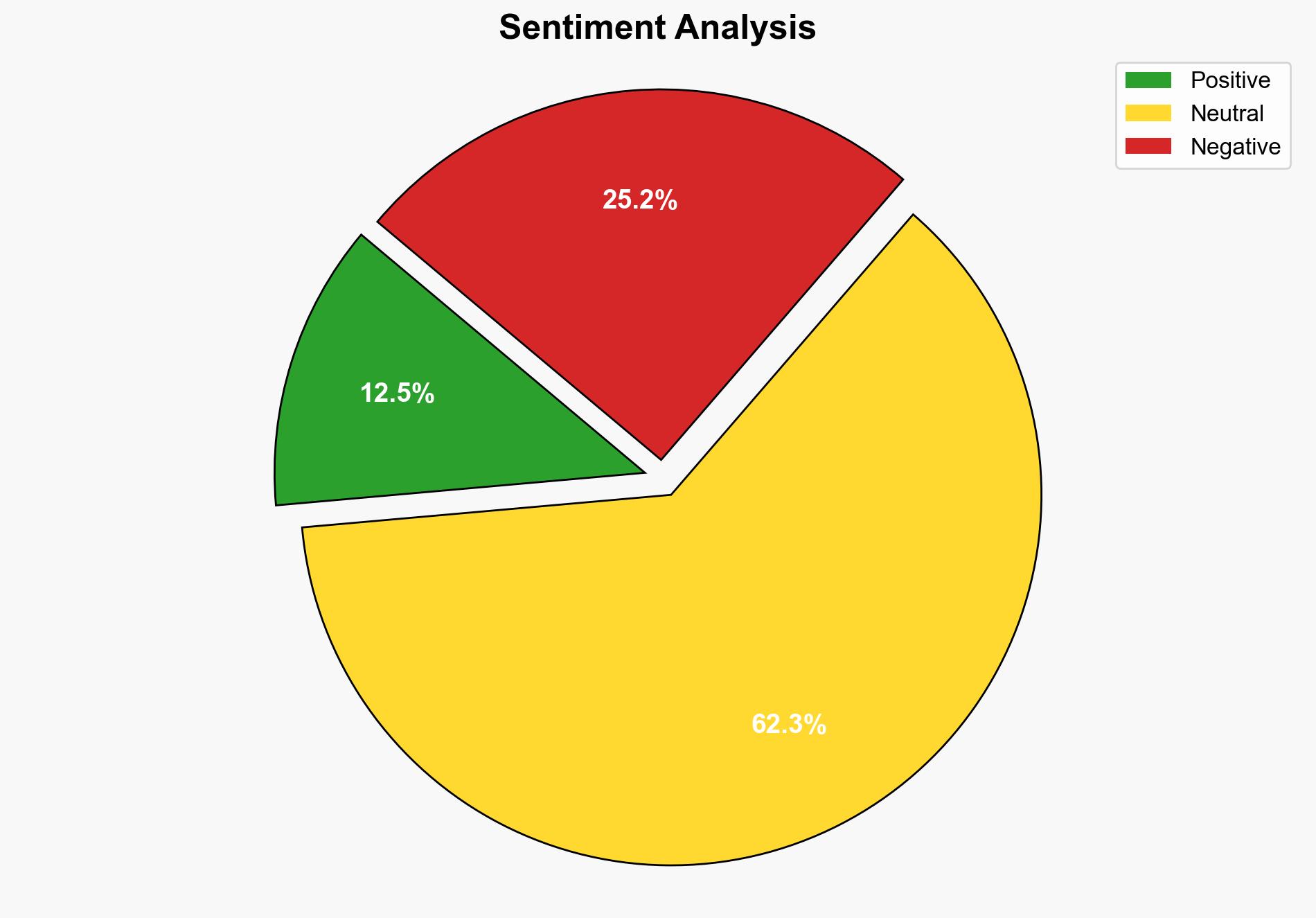ICC issues arrest warrants for Taliban leaders over persecution of women – Japan Today
Published on: 2025-07-08
Intelligence Report: ICC issues arrest warrants for Taliban leaders over persecution of women – Japan Today
1. BLUF (Bottom Line Up Front)
The International Criminal Court (ICC) has issued arrest warrants for Taliban leaders, including Haibatullah Akhundzada and Abdul Hakim Haqqani, citing crimes against humanity related to gender persecution. This action highlights ongoing international legal efforts to address human rights violations in Afghanistan. The strategic recommendation is to support ICC initiatives and enhance diplomatic engagement to ensure accountability and uphold women’s rights in the region.
2. Detailed Analysis
The following structured analytic techniques have been applied to ensure methodological consistency:
Causal Layered Analysis (CLA)
At the surface level, the ICC’s actions are a direct response to the Taliban’s policies restricting women’s rights. Systemically, this reflects broader international efforts to enforce human rights norms. The worldview underpinning these actions is the global commitment to gender equality, while the mythic layer involves the narrative of justice for oppressed groups.
Cross-Impact Simulation
The issuance of arrest warrants may influence regional stability, potentially affecting neighboring countries’ diplomatic relations with Afghanistan. It could also impact international aid and economic dependencies, as countries reassess their engagement with the Taliban regime.
Scenario Generation
– Best Case: Increased international pressure leads to policy reforms within Afghanistan, improving women’s rights.
– Worst Case: The Taliban retaliates against perceived international interference, escalating regional tensions.
– Most Likely: Continued international advocacy results in limited but significant improvements in human rights conditions.
3. Implications and Strategic Risks
The ICC’s actions may lead to heightened political tensions and potential retaliatory measures by the Taliban. There is a risk of increased instability in Afghanistan, which could have cascading effects on regional security and international relations. Additionally, the enforcement of these warrants poses logistical and diplomatic challenges.
4. Recommendations and Outlook
- Support ICC efforts through diplomatic channels and international coalitions to ensure the enforcement of arrest warrants.
- Enhance intelligence sharing and collaboration with regional partners to monitor developments and mitigate risks.
- Scenario-based projections suggest focusing on diplomatic engagement to prevent escalation and promote human rights improvements.
5. Key Individuals and Entities
– Haibatullah Akhundzada
– Abdul Hakim Haqqani
– Zabihullah Mujahid
6. Thematic Tags
national security threats, human rights, international law, regional stability





